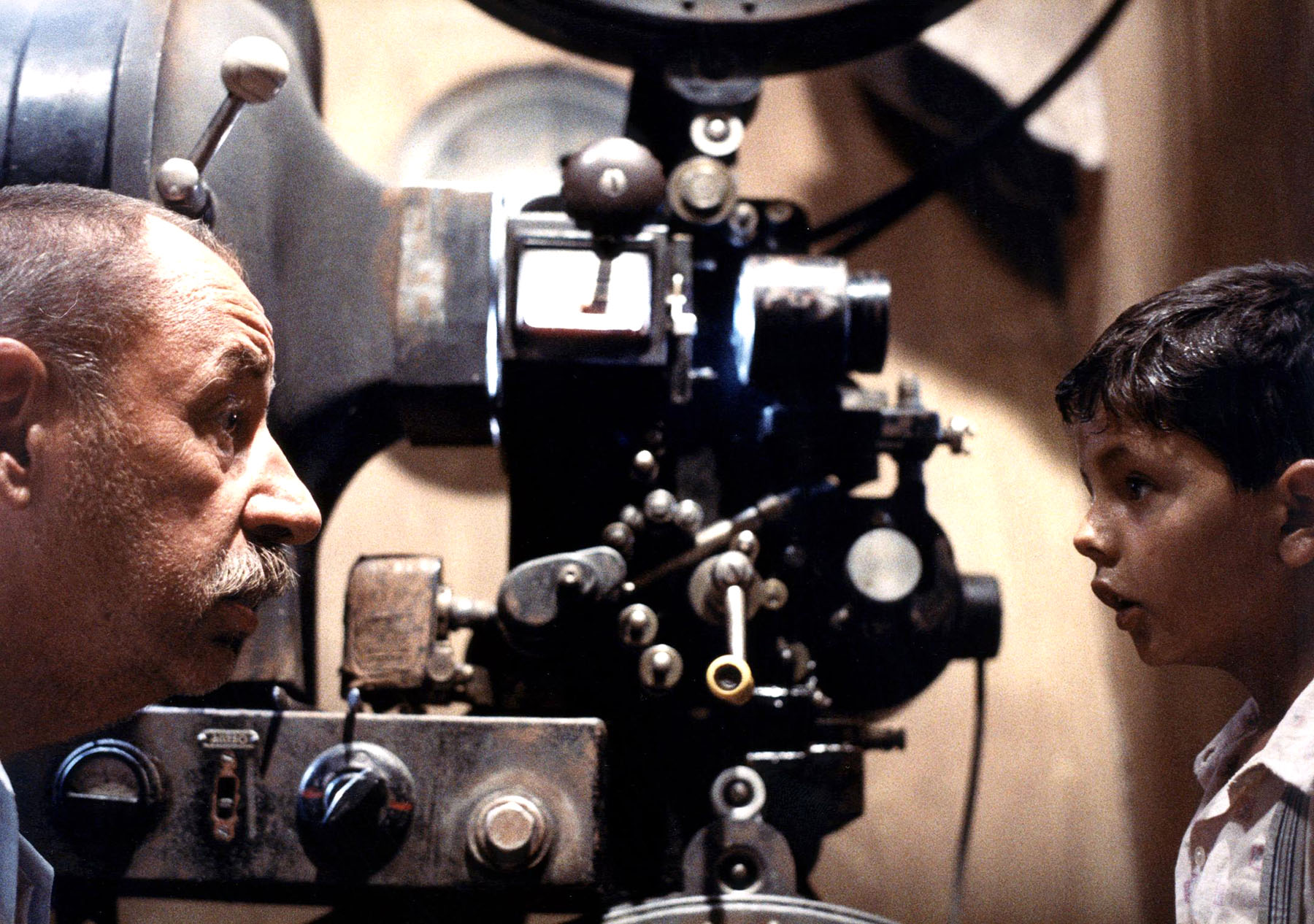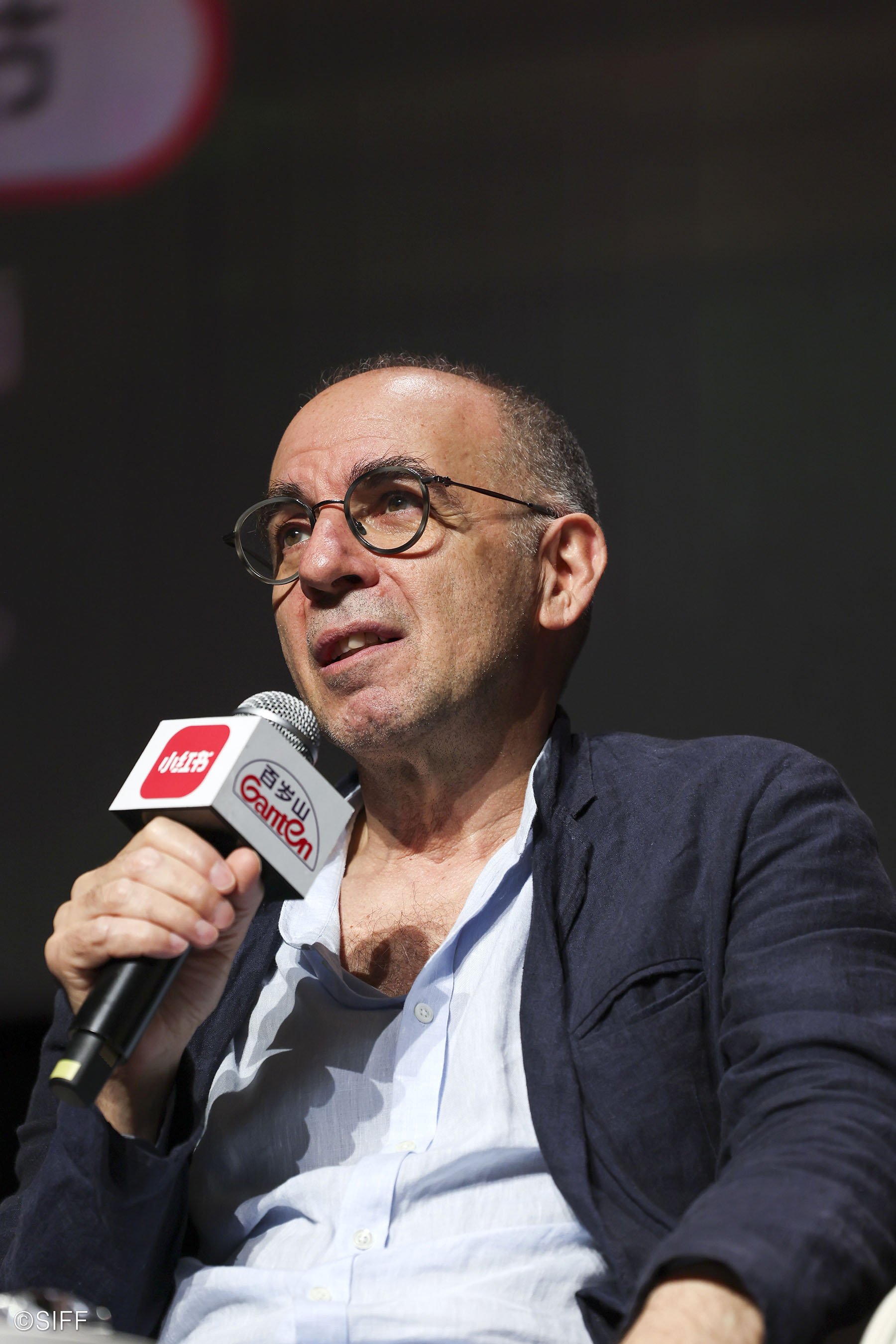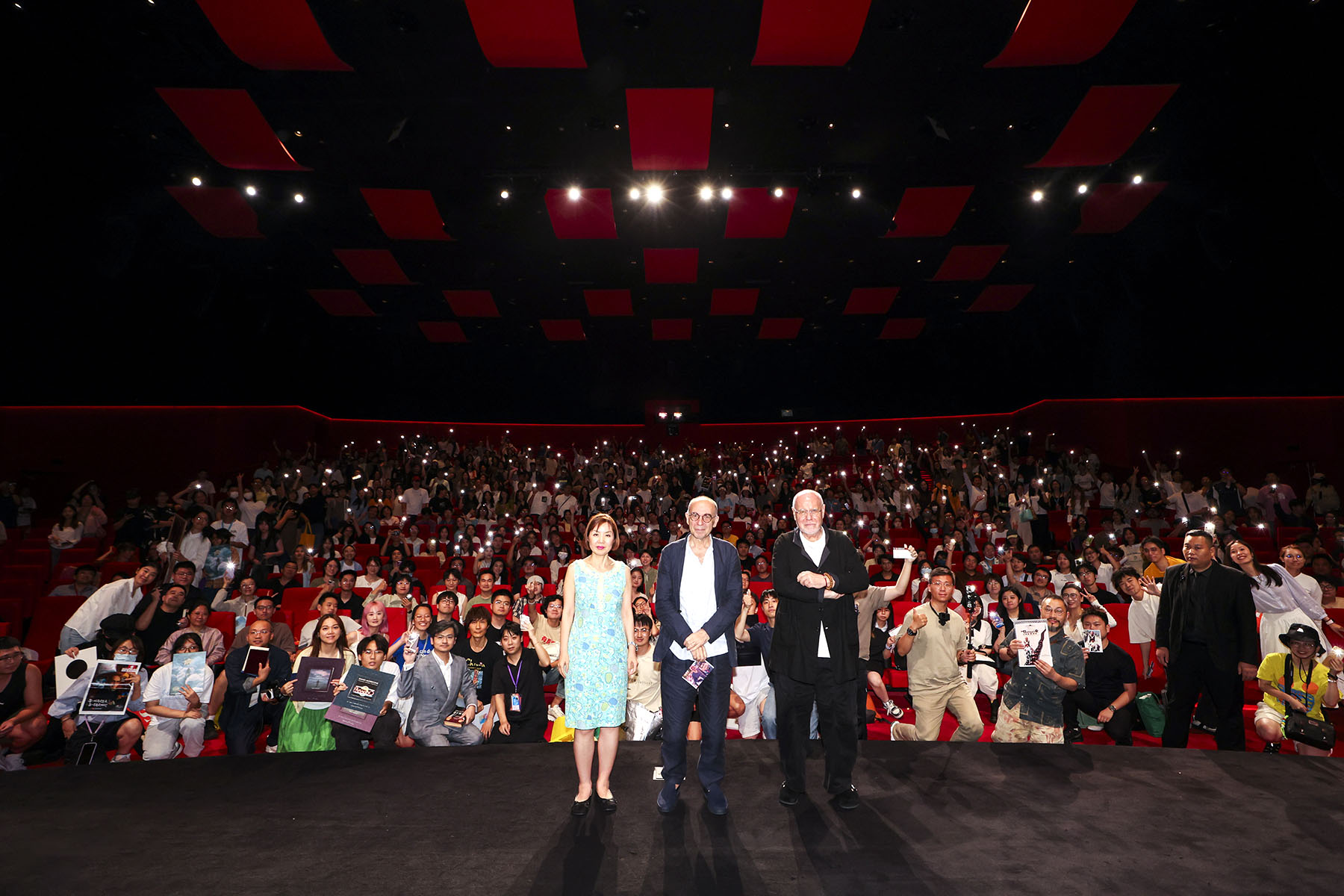Acclaimed Italian filmmaker shares in master class how his love of cinema blossomed in his youth, and offers advice for other movie directors and creators to overcome modern-day challenges, Zhang Kun reports.

Sharing his love for cinema with thousands of audience members at the 27th Shanghai International Film Festival was "the real experience of that portrayed in Nuovo Cinema Paradiso," said Italian film director Giuseppe Tornatore during his master class at the event.
Tornatore was the jury president for the Golden Goblet main competition at the film festival, which took place from June 13 to 22.
Tornatore watched the 12 competing movies over five days, eliciting memories of his youth when he would watch two or three movies a day, the Italian director told film producer Marco Muller, who moderated the session on June 20 at Shanghai Film City after the screening of Nuovo Cinema Paradiso.
The film is widely loved by Chinese audiences and was one of the first sold-out shows of the festival, with tickets snatched up within an hour last month. Some said they saw it multiple times — the film was one reason they fell in love with cinema.
READ MORE: Funding festival-worthy films
Tornatore says watching the film with audience members in Shanghai felt like it was not a movie he made 37 years ago, but rather a contemporary film of modern resonance.
Born in Sicily in 1956, the director became known for his films Nuovo Cinema Paradiso, The Legend of 1900, and Malena.
Looking back at his 40-year career, Tornatore says each of his films reflects a phase in his life. Nuovo Cinema Paradiso was deeply connected to his own youthful experiences.

He recalls the first time he went to the cinema at age 6.
"When the lights went off and the surroundings instantly plunged into darkness, the close-up of characters suddenly appeared on the screen," he says.
"To a child like me, they looked like giants. I could not help but ask myself: where did these giants come from? I looked at the screen and stared at the side door next to it, thinking maybe they entered from there. But then, during the intermission, the lights came back on and the giants disappeared.
"At that time, smoking was still allowed in the cinema, and the entire screening hall was filled with smoke. I saw a bright, white beam of light piercing through the smoke and shining directly onto the screen. Following the light, I discovered it came from a small window at the back of the theater. As long as the beam of light moved, the giants on the screen would move with it. Then I understood that the secret of the movie was hidden behind that small window."
When he was 9, Tornatore got to know a projectionist who was also a photographer. He taught the boy how to project films and take photographs, becoming the inspiration for Alfredo in Nuovo Cinema Paradiso, Tornatore says.
During that time, Tornatore began filming with an 8mm camera, and by the time he was 14, he was working as a projectionist.
He had a busy life as a youth, taking classes in the morning and showing films in the afternoon. During summer vacations, he took pictures for people to earn pocket money.
While projecting a movie for others, he would study it and think about how two images connected. He also projected films he made with the 8mm camera.
"Through this training, I learned how to edit films."

He also suggested that aspiring moviemakers must learn as much as they can, especially film editing, a vital skill for filmmakers. "I edited most of my creations myself", Tornatore says.
When Tornatore returned to his hometown at 21 after serving in the military, the old cinema he used to go to was being demolished. At the manager's request, he dismantled the projection room in two days. "It felt like holding a funeral for my beloved projector. I thought to myself, I should make a movie about cinemas."
He got his hands on the plan 11 years later. Just as the author Gabriel Garcia Marquez once told him: "When you have a story in your mind, don't rush to write it down. Keep thinking about it. The more you think, the richer it becomes." Once Tornatore began the story, it took just two and a half months to complete the script.
Aside from being an acclaimed film director, Tornatore is also an established writer — several of his films are adapted into novels. Muller asked why Tornatore didn't adapt Nuovo Cinema Paradiso into a novel.
"I did try, but it's a story that never ends. It is about the making of a film director. Almost 40 years have passed and many people still come to see it. We still talk about it like the film is still going. Maybe one day, I will complete the story," he says.
ALSO READ: Chinese movie and TV connect people across time
An audience member at the session asked Tornatore, with the popularity of short videos and internet content today, what filmmakers should do to keep audiences interested. Tornatore said that he is aware that China has more cinema screens than any other country in the world. "If you are faced with this, it is a serious challenge for filmmakers today."
However, he believes filmmakers should be encouraged because, compared to 50 years ago, the ways people watch movies and engage with film art have become increasingly rich and diverse. "With continuous technological innovation, we must create more diverse films, have confidence, and keep the faith.
"Despite the rapid changes in the world, we still have to hold on to our principles, remain true to our aspirations, and keep doing what we have been doing."
Contact the writer at zhangkun@chinadaily.com.cn


